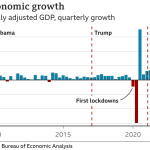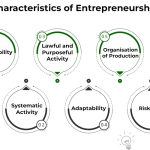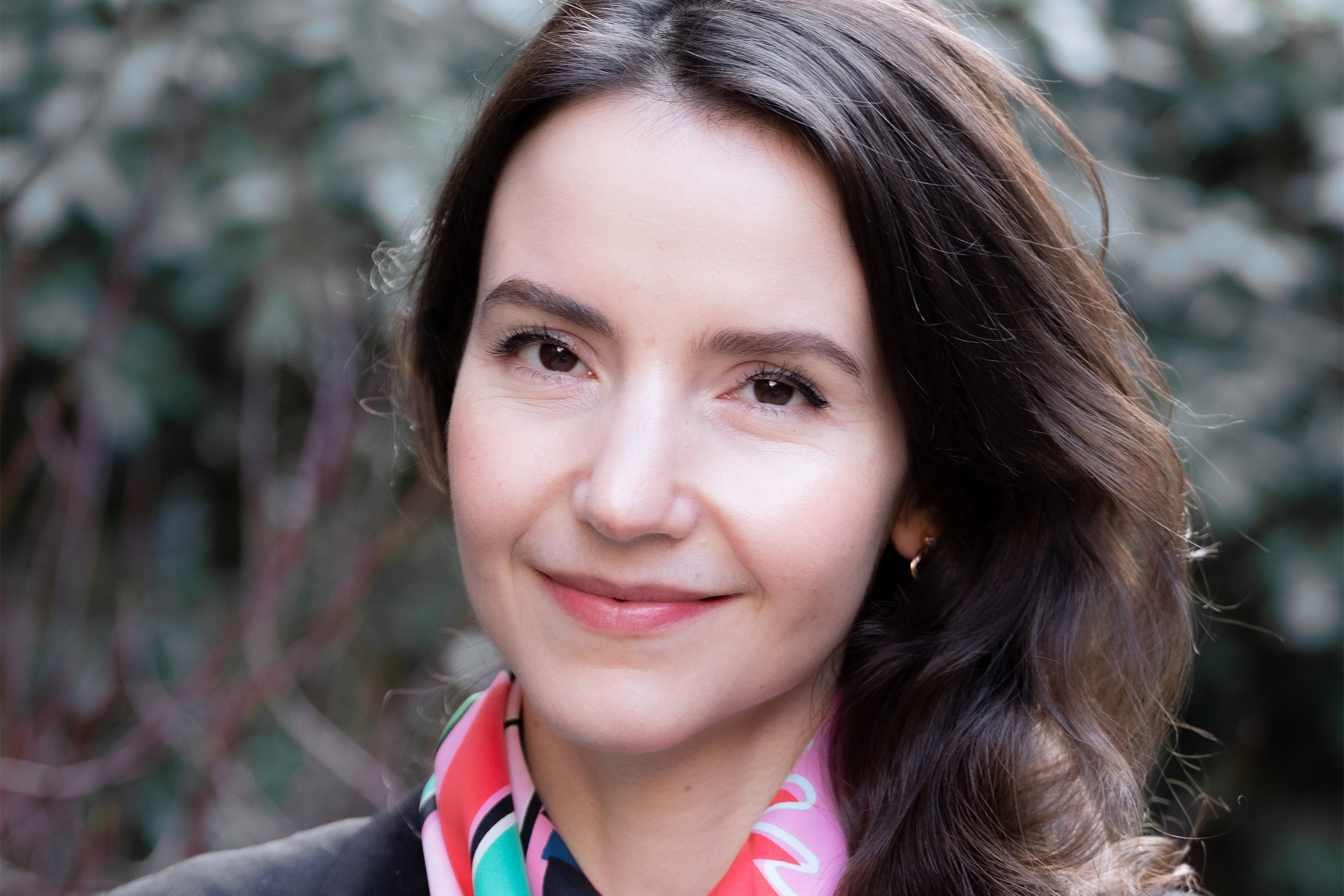Stefanie Stantcheva, a prominent figure in Harvard economics, has garnered significant attention with her recent accolade: the prestigious John Bates Clark Medal, awarded by the American Economic Association. Recognized for her groundbreaking contributions to tax policy insights and public finance research, Stantcheva has demonstrated a profound understanding of how economic behavior is influenced by taxation. Her innovative research underscores the delicate balance between tax policy and innovation, revealing how well-structured systems can foster growth and creativity. During a recent celebration, she expressed her gratitude for this honor, highlighting the importance of her work in shaping future economic policies. With her commitment to addressing pivotal economic issues, Stantcheva is undoubtedly a leading voice in the field, paving the way for future innovations in economics.
In the realm of economic theory and practice, Stefanie Stantcheva stands out as a key innovator, particularly among her peers under the age of forty. Her recent recognition with the John Bates Clark Medal serves as a testament to her noteworthy impact on areas including fiscal policies and their wider implications on economic dynamics. Through her diligent public finance research, Stantcheva has illuminated the effects of taxation on innovation, revealing critical insights that could transform how policymakers approach tax systems. As she leads initiatives at the Social Economics Lab, her ongoing work aims to bridge the gap between economic theory and real-world applications, further enhancing our understanding of social and economic behavior. Stantcheva’s contributions not only highlight her expertise but also signify an ongoing advancement in economic discussions at prestigious institutions like Harvard.
Stefanie Stantcheva: A Rising Star in Economics
Stefanie Stantcheva has emerged as a formidable force in the landscape of modern economics, achieving recognition not only for her groundbreaking research but also for her innovative approach to policy analysis. Awarded the prestigious John Bates Clark Medal in 2025, Stantcheva’s work focuses on critical areas such as tax policy and public finance, providing invaluable insights into how these components influence economic behavior. Her influence is especially pronounced in how her findings can reshape our understanding of taxation and its role in fostering or hindering innovation.
Her determination to address pressing economic issues is evidenced by her work with the Social Economics Lab, which she founded in 2018. Here, she explores complex topics including social mobility, climate change, and trade, emphasizing the multifaceted interplay between economic systems and human behaviors. Stantcheva’s research offers a fresh perspective on the challenges economists face today and promises to pave the way for innovative policy-making that takes these factors into account.
The Impact of Tax Policy on Innovation
In her groundbreaking 2022 paper, “Taxation and Innovation in the 20th Century,” Stefanie Stantcheva and her colleagues revealed critical insights into the relationship between tax policy and innovation. The study found a notable elasticity in innovation responses to tax changes, highlighting that adjustments in taxation can significantly influence the level of innovative activity within an economy. This research is crucial, especially for policymakers looking to promote economic growth through strategic fiscal adjustments.
Stantcheva’s findings suggest that while higher taxes may negatively affect the quantity of innovation, they do not compromise the quality of inventions produced. This nuanced view is essential for understanding how public finance can be leveraged to stimulate creativity and progress in various sectors. By emphasizing the dual impact of tax structures on both innovation levels and quality, Stantcheva contributes to a more comprehensive understanding of economic dynamics.
Recognition and Celebration within Harvard Economics
The celebration of Stefanie Stantcheva’s receipt of the John Bates Clark Medal reflects not only her personal achievements but also the vibrant community of Harvard Economics. Her colleagues, including Dean Hopi Hoekstra and Professor Elie Tamer, have lauded her significant contributions to the field, reinforcing the idea that her work embodies the spirit of innovation and rigorous inquiry that characterizes Harvard’s economic department. Stantcheva’s success is heralded as a testament to the strong tradition of excellence within Harvard’s academic environment, particularly in the realms of public finance research and economic theory.
As the department collectively honors her achievements, there is a shared belief that Stantcheva’s work will inspire future generations of economists to explore the intricate relationships between tax policy and social welfare. The presence of past winners at the celebration further underscores the ongoing legacy of impactful research being conducted at Harvard, shedding light on the essential role that these individuals play in shaping our understanding of economics.
Stantcheva’s Contributions to Public Finance Research
Stefanie Stantcheva has made significant strides in the field of public finance, particularly through her research exploring how tax policies affect economic decision-making. Her essential contributions emphasize the intricate connection between fiscal measures and individual behaviors, positioning her as a thought leader in the discipline. This focus on behavioral economics is crucial for developing policies that can effectively inspire innovation and drive economic growth.
Her involvement in high-impact projects, such as the Social Economics Lab, indicates her commitment to expanding the boundaries of public finance research. By investigating complex interactions between economic conditions and social issues, Stantcheva has opened new pathways for dialogue and exploration in economics. This work not only enhances theoretical knowledge but also provides practical implications for policymakers aiming to implement effective tax structures that support innovation.
Exploring Innovation through Behavioral Economics
Innovation in economics is increasingly being examined through the lens of behavioral insights, an area where Stefanie Stantcheva is pioneering research. By studying how emotions and psychological factors influence economic decision-making, Stantcheva is reshaping the way economists understand innovation. This approach recognizes that economic behavior doesn’t exist in isolation; rather, it is deeply intertwined with human psychology and social contexts.
Her current research projects delve into the interplay between various mindsets and policy acceptance, making groundbreaking contributions to how policymakers might design tax systems that are more in tune with human behaviors. This research holds potential long-term implications, offering frameworks to cultivate an environment where innovation thrives and addresses contemporary economic challenges.
The Role of the Social Economics Lab
Founded by Stefanie Stantcheva in 2018, the Social Economics Lab serves as a dynamic platform for investigating pressing economic issues through an interdisciplinary lens. The lab’s focus on real-world applications of economic theory allows for the exploration of topics that resonate with current societal challenges, such as trade, immigration, and climate change. By engaging in collaborative research, the lab encourages a holistic approach to understanding economic phenomena.
The Social Economics Lab is not just about generating academic discourse; it aims to bridge the gap between theory and practice, providing insights that can inform effective policymaking. Stantcheva’s leadership in this initiative exemplifies her dedication to advancing economic research while also ensuring that findings are relevant to contemporary issues facing societies worldwide.
Future Directions in Economic Research
Stefanie Stantcheva’s career trajectory indicates a commitment to exploring uncharted territories in economic research. Her recent focus on emergent topics, such as the influence of emotions on policy design, is indicative of the evolving nature of economics as a discipline. This innovative approach could ultimately lead to more nuanced understandings of how public policies impact various demographics, fostering a more inclusive economic framework.
As she continues to explore these new dimensions, Stantcheva represents a new generation of economists who prioritize interdisciplinary collaboration and empirical inquiry. This outlook not only enriches the field of economics but also contributes to a more robust policy dialogue, laying the groundwork for sustainable solutions to complex issues facing economies today.
The Significance of the John Bates Clark Medal
The John Bates Clark Medal stands as a prestigious acknowledgment, awarded to economists under the age of 40 for their significant contributions to the field. For economists like Stefanie Stantcheva, receiving this accolade is not just a personal triumph but also a reflection of an individual’s potential to shape the future of economic thought. The medal highlights the importance of recognizing innovative and impactful research within the academic community.
In celebrating Stantcheva’s achievements, the award committee draws attention to her research’s implications for broader economic discussions, particularly concerning tax policy and its potential to foster innovation. The recognition serves to motivate emerging economists to pursue research that challenges conventional wisdom and addresses pressing issues, solidifying the Clark Medal’s role in promoting a vibrant academic environment.
Stefanie Stantcheva’s Vision for Economic Policy
Stefanie Stantcheva envisions an economic policy landscape where rigorous research and human behavior insights coalesce to inform effective governance. Her work emphasizes the need for policies that not only address theoretical frameworks but also resonate with public sentiment and individual experiences. This approach is crucial in a rapidly changing economic environment, where traditional models may fall short.
By developing a nuanced understanding of the interplay between tax systems and social dynamics, Stantcheva advocates for policies that prioritize innovation while ensuring fairness and inclusivity. Her vision for economic policy embodies a forward-thinking approach that considers the complexities of human behavior, aiming to create a more equitable and sustainable economic future.
Frequently Asked Questions
What contributions led to Stefanie Stantcheva winning the John Bates Clark Medal?
Stefanie Stantcheva won the John Bates Clark Medal for her pioneering work in public finance, particularly her insights into tax policy and its effects on economic behavior and innovation. Her research found that innovation is highly responsive to tax policy changes, illustrating the critical role tax systems play in fostering or hindering economic activity.
How does Stefanie Stantcheva’s research impact public finance and tax policy?
Stefanie Stantcheva’s research significantly impacts public finance by revealing that well-designed tax policies can encourage innovation and economic growth. Her studies, such as ‘Taxation and Innovation in the 20th Century,’ highlight the importance of tax elasticity on innovation, making her insights crucial for policymakers aiming to optimize their tax systems.
What is the significance of the John Bates Clark Medal in economics, particularly for economists like Stefanie Stantcheva?
The John Bates Clark Medal is a prestigious award given to economists under 40 who have made significant contributions to economic thought. For Stefanie Stantcheva, receiving this medal not only recognizes her influential research in tax policy and innovation but also enhances her visibility and impact in the field of economics.
What are some key themes in Stefanie Stantcheva’s research on innovation and tax policy?
Key themes in Stefanie Stantcheva’s research include the relationship between tax policy and innovation, the effects of taxation on economic behavior, and how taxation can either incentivize or disincentivize innovation. Her work emphasizes the importance of understanding these dynamics to improve economic outcomes.
What is the Social Economics Lab founded by Stefanie Stantcheva?
The Social Economics Lab, founded by Stefanie Stantcheva in 2018, is an initiative aimed at exploring the interplay between economic policies and human behavior. It studies varied topics including trade, immigration, climate change, and social mobility while focusing on how emotional and psychological factors influence economic decision-making.
How does Stefanie Stantcheva’s work redefine our understanding of economic behavior?
Stefanie Stantcheva’s work redefines economic behavior by integrating insights about human psychology and emotions into economic models. Her research illustrates that people’s mindsets, such as zero-sum thinking, significantly affect their reactions to economic policies, providing a more nuanced understanding of public finance.
| Key Point | Details |
|---|---|
| Award Recognition | Stefanie Stantcheva awarded the 2025 John Bates Clark Medal for significant contributions to economics. |
| Focus Areas | Her research focuses on tax policy, innovation, public finance, trade, immigration, climate change, and social mobility. |
| Research Impact | Explored how tax policy affects economic behavior and innovation; found that higher taxes negatively impact innovation quantity. |
| Social Economics Lab | Founded in 2018 to explore economic issues and policies, engaging with topics like emotions and public policy. |
| Colleague Support | Stantcheva’s contributions have garnered praise from her colleagues, highlighting her deserving recognition. |
Summary
Stefanie Stantcheva has made remarkable strides in the field of economics, particularly noted by her recent accolade of the John Bates Clark Medal. Her innovative research on tax policy’s influence on economic behavior not only sheds light on important fiscal matters but also emphasizes the vital role of innovation in economic growth. Through her work at the Social Economics Lab, she continues to delve into pressing issues that shape our economy, asserting her position as a leading economist beneath the age of 40.









